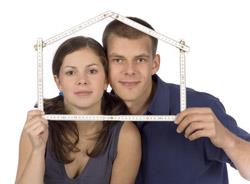Deciding to buy a house is a huge step, even more so if it’s for the first time.

A helpful tip to calculate whether the purchase of the house will place the buyer under financial strain is to add up all monthly expenses and those costs relating to the house (bond repayments, taxes and property insurance) in order to verify whether or not they exceed the gross monthly income. It is advised that the cost associated with the house should not exceed 30% of the gross monthly income.
On top of all the financial decisions that need to be addressed, there are other important factors that must be considered when starting on the journey to purchase the house of your dreams. It is vital to research and make all the necessary enquiries before signing your name on the dotted line.
According to Jan Myburgh, General Manager of Harcourts Real Estate South Africa, first-time buyers should know that besides the asking price for the property, there are many other additional costs that need to be incorporated into the budget. These would include transfer duties, conveyancing fees, rates and bond, homeowner’s insurance and the actual moving cost of hiring delivery vehicles.
“These expenses, and others that are associated with moving, all add up and amount to much more than anticipated,” he says.
A helpful tip to calculate whether the purchase of the house will place the buyer under financial strain is to add up all monthly expenses and those costs relating to the house (bond repayments, taxes and property insurance) in order to verify whether or not they exceed the gross monthly income. It is advised that the cost associated with the house should not exceed 30% of the gross monthly income.
Besides the financial preparation involved before the purchase of a home, factors relating to the actual property need to be determined. It is important to have a concrete idea of the type of property that is wanted, the preferable area and required space - which all needs to be compatible with the established budget.
Myburgh says when determining the type of property buyers are looking to purchase, they need to decide whether they would like to live in a free-standing house, complex or gated community. “Free-standing homes allow for more privacy and generally offer a larger space, however, gated communities and complex living offer great security, which is a huge benefit with crime statistics so high in the country.”
The area also plays a large role in determining the levels of crime that can be expected. A property may be ideal in all respects but located in a ‘bad’ neighbourhood - when weighing the options to purchase such a property, the buyer should keep in mind the security of their family, as well as the future value of the property that may depreciate as the area deteriorates.
When looking to purchase a home, the buyer should ensure that the property is conveniently located with regard to their work, shops and loved ones. It is also important to keep the future in mind. If the buyer is thinking of starting a family in the near future, they need to ensure that the property has the space necessary to raise a family.
Myburgh says when house-hunting, don’t settle for anything less than perfect, but be careful not to exceed your budget.
Buying a house is a huge commitment and needs to be handled with extreme consideration, he adds. “Shop around, take pictures that you can refer to, write down key points that will help you narrow the search and soon you will find the house of your dreams.”








